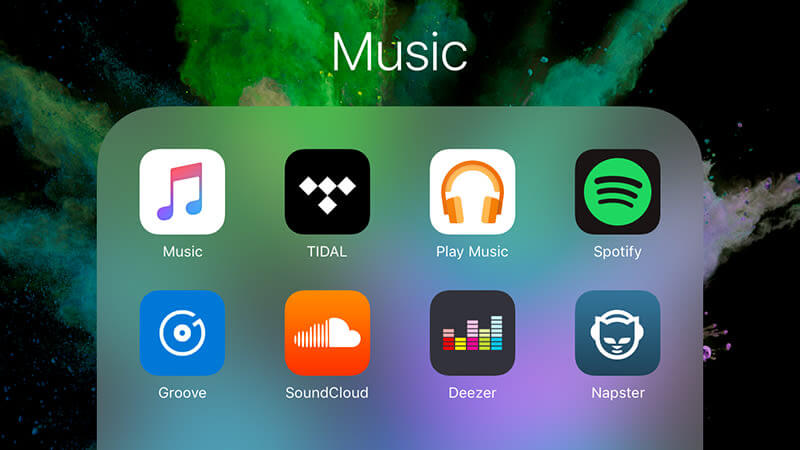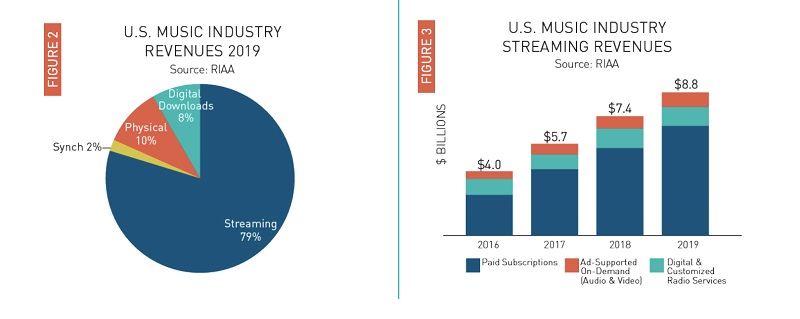
When the likes of digital music stores first arrived, there were massive concerns that the loss of physical album sales would kill the industry and once streaming services started gaining traction, that fear only escalated.
While some of those predictions might have materialised for the likes of traditional record stores and how album sales are calculated, it appears that the entire industry is on the up and up as the annual year-end report from the RIAA (Recording Industry Association of America) has revealed that the overall revenue in the industry rose last year to $11.1 billion, up from $9.8 billion in 2018 and $8.8 billion in 2017.

That is pretty significant growth and it’s mostly due to the rise of subscriptions to streaming services like Spotify, Deezer, Apple Music and Amazon Music which now accounts for 79% of that total revenue and subscriptions in the US rising to over 60 million people.
Interestingly, while physical album sales were predictably down overall, vinyl is back on the rise and grew by 19%, even though its overall market share is a minor 4.5% of the overall market share.
So while music streaming has definitely had an impact on the way recording companies have had to make their money, it appears that the industry as a whole has grown, and more people continue to listen to and spend money on music. Having access to more music for less has only increased that desire.
What these metrics don’t indicate is exactly how much of this money is going back to the record labels and the artists, although musicians tend to make the majority of their money from performing live rather than record sales which go to the record labels that fund them. Hopefully the labels are able to get a decent share of this income too and we can continue to see the likes of streaming services only continue to grow the music industry.
Last Updated: February 27, 2020





















Original Heretic
February 27, 2020 at 15:36
“Do you like American music? I like American music…”
Kenn Gibson
February 27, 2020 at 14:41
As a full time musician, spotify etc while great for getting your music out there doesn’t really make any money. Worldwide it’s touring and merch that make the bulk of your income. In SA it’s only a small percentage making a living off original music, the rest of us play corporate shows and weddings as well teach to make ends meet.
Tbone187
February 28, 2020 at 16:24
While well marketed artists pull in the streams by the millions and get paid accordingly, Which is also great for distributors and labels,there are so many independent artists these days contributing to a bloated mass of media on various platforms without many getting any traction at all.
This brings you back to gigging for a living which then drags out the old ”play for exposure tactic” here in SA which ultimately means marketability of your product is everything. Pull a crowd ,venues pay and you can demand.So full circle in the end.
And who the hell actually trusts SAMRO in any way, shape or form? I’ve done lead guit on a song played on radio with a band bout 6 yrs ago which we never got remunerated for despite signing up to their BS promises on royalties, etc.Wonder if it’s a similar experience with Spotify and these big cats.
Ultimately I feel this monthly premium paying streaming culture, while positive for listeners I suppose(each their own on this), means very little to muzos. Well at least the up n coming ones. I’m sure there’s a few success stories out there.I’m not totally convinced but as you say, the industry is booming so I might have to up my game with a bit more focus.